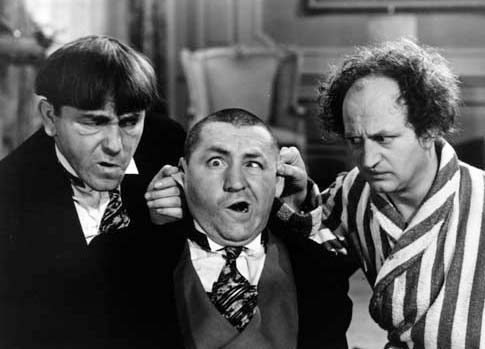5 reasons everything you know about teamwork is wrong
.
1) Teams aren’t always a good idea
Via Top Dog: The Science of Winning and Losing
…teams are not automatically better than the sum of their parts. They are often worse. This is termed “collaborative inhibition” or “process loss.”… People have a bias to romanticize the benefits of team productivity, while underestimating just how much time is wasted by teams. According to University of North Carolina professor Bradley Staats, productivity per person can drop 40% even on a small team… In studies of thousands of companies that have implemented teamwork, there’s no firm evidence that, on average, they make any more money, or are even more productive, after instituting a team-based structure.
2) Ninety percent of team success is determined before they start work
Via Top Dog: The Science of Winning and Losing
…what Hackman calls the “60/ 30/ 10 Rule.” Having studied teams in many settings, from airplane cockpits to symphony orchestras, Hackman believes that 60% of a team’s fate has been written before the team members even meet. Its destiny is decided by a combination of the team leader’s efficacy, whether the team’s goal is challenging yet attainable, and the ability level of the people recruited to the team. Thirty percent of a team’s fate is sealed with the initial launch of the team— how the teammates meet and, in those initial exchanges, how they split up the responsibilities and tasks before them. They need to agree on common codes of conduct and shared expectations. All told, 90% of a team’s fate has been decided before the team ever begins its real work.
3) Defining roles may be the most important thing a team does
Via Top Dog: The Science of Winning and Losing
Clarifying who is going to do what— identifying distinct roles— is one of the most proven ways to increase the quality of teamwork. The egalitarian notion that team members should be equal in status and interchangeable in their roles is erroneous. Teams work best when participants know their roles, but not every role needs to be equal. Dr. Eduardo Salas, at the University of Central Florida, is one of the most widely cited scholars studying team efficiency. He has devoted his life to understanding the vast sea of team-building and team-training processes— analyzing teams used in the military, law enforcement, NASA, and numerous corporate settings. The only strategies that consistently deliver results are those that focus on role clarification: who’s going to do what when the pressure gets intense.
4) Everyone does not need to be a “Team Player”
Via Top Dog: The Science of Winning and Losing
One fallacy about teams is that, to be successful, everyone must be friends. The research says it’s the other way around: team performance drives the quality of relationships… There is an argument to be made that not everyone on a team should be a classic “team player.” In a study of 78 European and American orchestras, Harvard’s Hackman arrived at a counterintuitive conclusion: the better an orchestra sounded, the more likely there was rivalry, quarreling, and discord behind the scenes. The only times they were in harmony was onstage.
5) Yes, you should treat stars differently
Via Top Dog: The Science of Winning and Losing
Doesn’t giving stars special treatment undermine the motivation of the rest of the team? Researchers have looked at the pay of NBA stars, compared with that of their lesser-famous teammates. On average, if certain teammates are getting what is perceived to be an unjustified windfall, that hurts performance: team members won’t work as hard to grab what they see as the short end of the stick. But as long the star treatment is warranted, it doesn’t hurt performance… Stars aren’t the same. Stars face elevated levels of scrutiny: the expectations for their performances are much higher.
Join 45K+ readers. Get a free weekly update via email here.
Related posts:
What are the 18 secrets to giving a presentation like Steve Jobs?
What are the top five career regrets?
Checklist: Are you doing these five things to be more effective at work?




